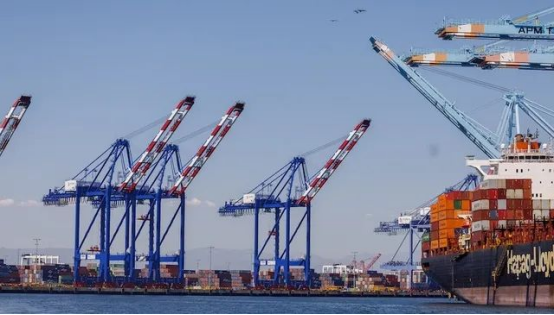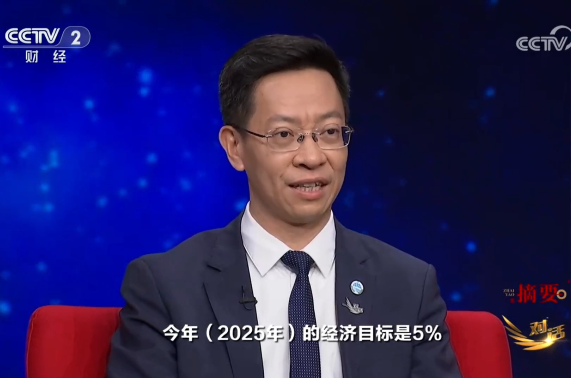Jiemian News interviewed Yu Miaojie a deputy to the National People’s Congress, Fellow of the International Economic Association and President of Liaoning University (LNU), in June 2025. The following is the full text of the interview.
In summary, Yu Miaojie, President of Liaoning University, stated that China should seek to reduce the 20% tariffs imposed over the so-called fentanyl issue in the next phase of negotiations.

On Monday, China and the US issued a joint statement on their economic and trade talks in Geneva, significantly lowered bilateral tariff levels. How should the outcomes of this round of China-US economic and trade talks be viewed? What will be the focus of the next phase of negotiations? What will happen following the 90-day suspension period? How will the global economic and trade landscape evolve? Regarding these questions, Yu Miaojie, President of Liaoning University was interviewed by Jiemian News.
He noted that this round of negotiations is a significant victory for China, demonstrating the success of China’s strategy of keeping the door open for talks; and being ready to fight back if necessary. This success will also encourage other countries to resist US trade hegemony.
Calculations by several scholars based on the joint statement indicate that after this round of talks, the average US tariff on Chinese goods will temporarily drop to around 50%.

(Yu Miaojie interviewed by Dialogue, CCTV)
Yu Miaojie stated that, in the short term, a 50% tariff remains highly damaging for the US economy, so further reductions are expected. In the next phase of negotiations, China should seek to cut the 20% tariffs imposed related to the so-called fentanyl issue. In the long term, he predicted that China will further strengthen its economic and trade cooperation with ASEAN and the EU, while the US is likely to revert to its historical Monroe Doctrine and isolationism, be absent from the new wave of globalization.
Professor Yu Miaojie is a distinguished scholar in international trade and finance. In 2024, he was invited to serve as an associate editor of the Economic Journal, a top-tier global economics publication. During the 2018 China-US trade war, he advised China to emphasize proportional and equivalent countermeasures rather than equal scale, a strategy that was flexibly applied by the Chinese government.
Jiemian News: How do you view the outcomes of the China-US economic and trade talks in Geneva?
Yu Miaojie: This negotiation truly reflects the principle of equality and mutual benefit, particularly the importance of equality. Therefore, I consider this a great victory for China in the Trump 2.0 trade war, safeguarding both our interests and dignity as a major nation. It demonstrates to the world China’s commitment to keeping its word and advancing economic globalization.
This significant progress is also a testament to the success of our consistent strategy of keeping the door open for talks; ready to fight back if necessary, a strategy of promoting peace through resistance. It represents the realization of the true multilateral trade outcomes we have championed and reflects China’s refusal to succumb to Trump’s trade threats, and its steadfast commitment to trade globalization.
Jiemian News: What are the main reasons behind Trump’s decision to significantly reduce tariffs?
Yu Miaojie: First, rising inflationary pressures in the US. To combat inflation, the Federal Reserve needs to maintain high interest rates as only high rates can attract capital to banks and curb inflation. However, this is clearly detrimental to economic growth as high interest rates cool economic activities. This contradiction has put the Trump administration under immense pressure.
Second, the reshoring of US manufacturing is impossible in the short term. Even if Trump’s tariff policies were effective, reshoring would take at least 10 to 20 years—time that history and other nations are unlikely to grant, given the US’s lack of comparative advantages in manufacturing.
Third, Trump initially hoped to increase tariff revenues, but when tariffs reach prohibitively high levels that imports become unviable,—the high tariffs become counterproductive. These three factors collectively pushed the Trump administration to proactively seek negotiations with China.
Jiemian News: In the joint statement, the two sides will establish a mechanism to continue consultations on economic and trade relations. How do you expect the negotiations to proceed?
Yu Miaojie: The latest statement notes that the US retains the remaining 10% tariffs on Chinese goods imposed under Executive Order 14257 on April 2. Before Trump took office this year, the average bilateral tariffs were around 20%. After taking office, Trump imposed two rounds of tariffs totaling 20% on China over the fentanyl issue, plus the 10% tariffs added on April 2, bringing the total tariffs on Chinese goods to approximately 50%.
High tariffs are particularly harmful to the US. If the US wants to reduce its trade deficit, lower inflation and boost economic growth, tariffs must be further reduced. Therefore, the next goal of our negotiations should demand the US revoke the unjustified 20% punitive tariffs linked to fentanyl exports.
From China’s perspective, our approach remains consistent: keeping the door open for talks; ready to fight back if necessary, adhering to the principles of multilateralism and responding with reason, advantage, and restraint.
Jiemian News: The joint statement mentions that 24% of the tariffs imposed on April 2 will be suspended for 90 days. After this period, will these 24% tariffs be lifted? Previously, the Trump administration implemented a 90-day suspension to countries other than China. What will happen to their tariffs after 90 days?
Yu Miaojie: After 90 days, I believe these 24% tariffs should be lifted. Rationally speaking, they ought to be, but Trump’s hallmark is unpredictability, so it’s also possible that he might reimpose them. If he does, we can respond with equivalent countermeasures.
As for other countries, after the 90-day suspension, I expect Trump will continue imposing high tariffs though not uniformly on all nations. His so-called “art of the deal” involves proposing exorbitant tariffs, then offering a discount, creating the illusion that other countries owe him or that he’s granting them a favor. Previously, most nations lacked the courage or capacity to counter the US like China did and chose to endure silently. But after 90 days, I suspect other countries will also begin to say no to US trade hegemony, as China has set a powerful example.
Jiemian News: What should China do next in response to the trade war? How might the global economic and trade landscape evolve?
Yu Miaojie: In this trade war, China has earned immense international prestige. Among over 200 countries worldwide, only China dared to say no to US trade hegemony. This is the responsibility and stature of a major nation.
Going forward, I expect that China’s economic and trade ties with ASEAN and the EU will be further strengthened. The Regional Comprehensive Economic Partnership (RCEP) already exists between China and ASEAN. As for China and the EU, the China-EU Comprehensive Agreement on Investment (CAI) was previously shelved for various reasons, but now is an excellent opportunity for its revival. When the EU realizes the US is unreliable, cooperation with China becomes a way forward, and CAI negotiations may resume.
To counter US trade coercion, diversifying export destinations is the best approach. In April, China’s exports to the US fell by 21% year-on-year, yet total trade volume rose. Why? Because trade with other regions—particularly ASEAN, the EU, Africa, and Latin America—increased significantly.
Additionally, efforts in services trade must continue. When the Ministry of Commerce proposed the goal of becoming a trade powerhouse in 2010, a key aspect was transitioning from a large trade nation to a strong one by excelling in services trade. China must now address its weaknesses by improving services trade, particularly in outbound education and tourism.
Moreover, China should actively pursue outward direct investment. Unlike the US, China’s investments abroad not only create substantial local employment but also involve technology transfer. China is confident that even if today’s best technologies are transferred, even better ones will emerge tomorrow.
In attracting foreign investment, China’s advantages remain significant, especially in capital-intensive industries. For labor-intensive industries, the advantages are less pronounced due to higher labor costs compared to Southeast Asia. However, for such industries, the critical factor isn’t labor costs but the presence of supporting upstream and downstream industrial chains. China’s robust industrial chain integration and industrial clustering remain the core strengths of its manufacturing sector.
Will globalization continue? I boldly predict: it will. But the new globalization will exclude the US, which may retreat into its historical roles of Monroe Doctrine and isolationism. This is one point of the profound changes unseen in a century.